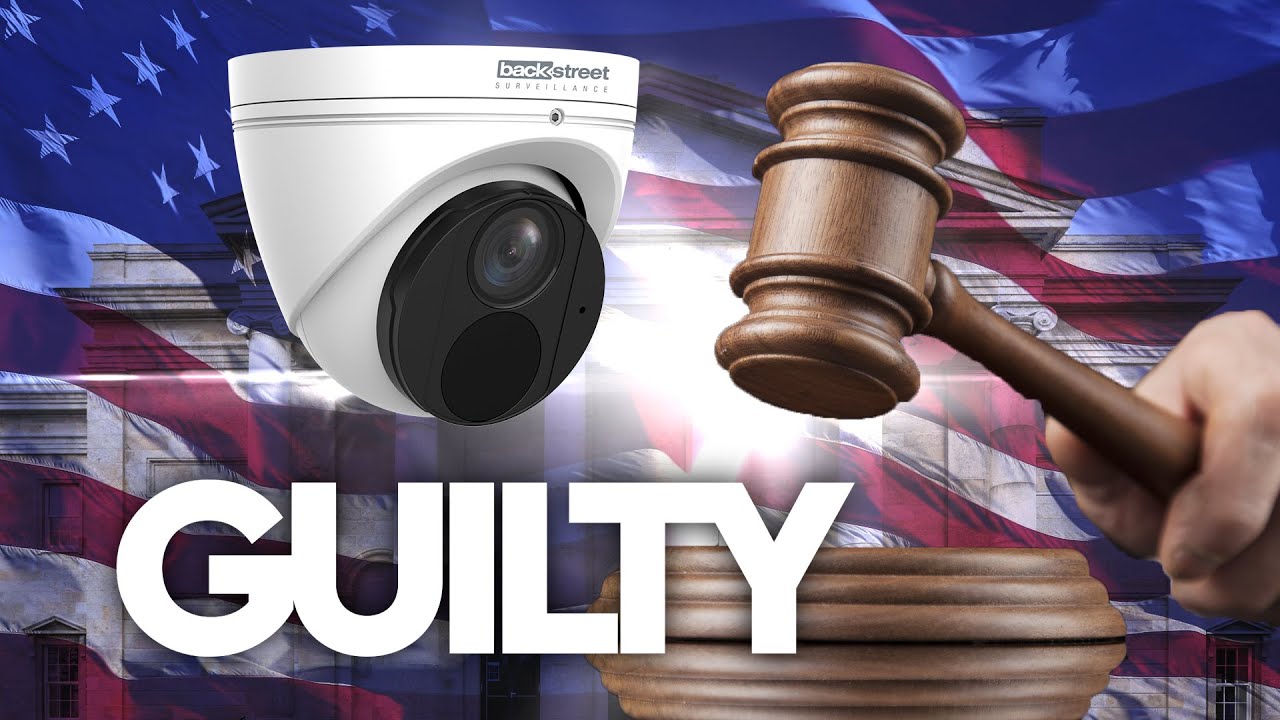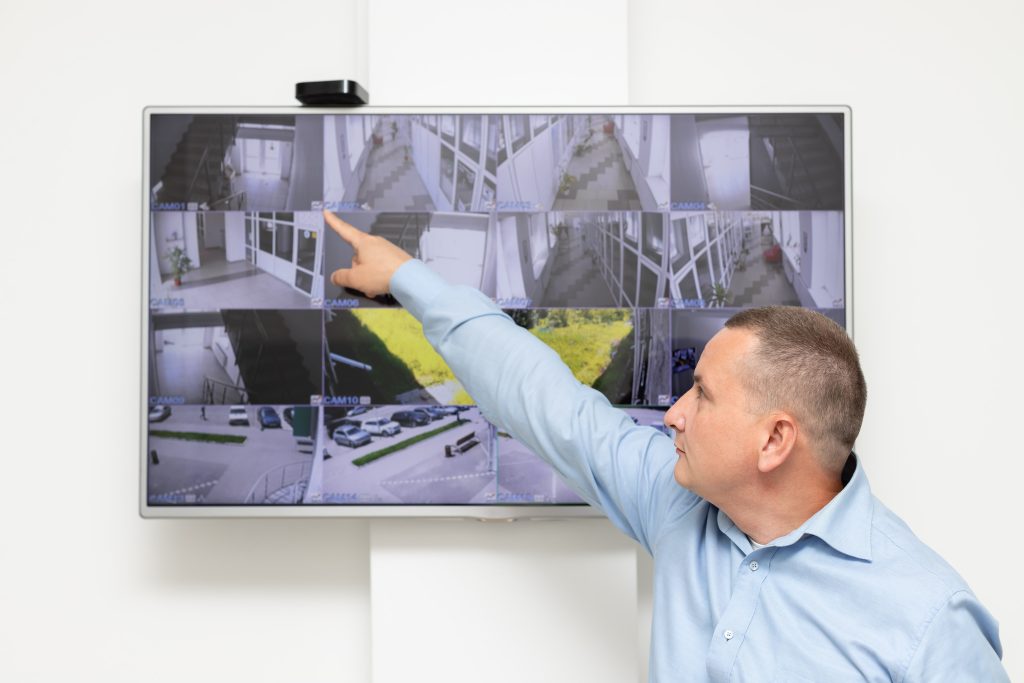Can Home Security Cameras Be Used in Court?

Most people don’t think about their home security cameras beyond keeping an eye on packages or maybe catching a raccoon digging through the trash. But those little devices can play a bigger role, especially in legal cases. Imagine footage of a break-in or an accident—it’s powerful, right? Still, not every video clip makes it to court. (1)
There are rules about how evidence is collected and used, and they can get tricky. Knowing what makes footage admissible could make all the difference. Curious about how to ensure your cameras work for you when it matters most? Keep reading to learn more.
Key Takeaway
- Home security footage must be legally recorded to be used in court.
- The quality and clarity of the footage are important for identification.
- It’s best to consult with a legal expert before using footage in legal matters.
Understanding the Legal Framework for Admissibility
Credits : The Security Experts
General Requirements
Using home security camera footage in court isn’t as simple as just hitting play. With Shielded Residence’s comprehensive home security systems, footage is not just easy to retrieve but is recorded following ethical and legal standards, making it more likely to be admissible in court.
There are some rules to follow to make sure the evidence is allowed. First, the footage has to be recorded legally. You can’t just record someone in a private place, like a bathroom or bedroom, where they expect privacy. If you do, that video probably won’t be used in court.
How the footage is collected matters too. If the police want to use it, they need permission from the owner or a warrant. If they take it without asking, it might not hold up in court.
Then there’s the chain of custody. This just means keeping track of the footage from the moment it’s recorded until it’s shown in court. If the video gets lost or changed, it could be thrown out. Timestamps are also a big deal—they show when something happened. If the time is wrong, it can make the evidence look unreliable. And, of course, the footage has to be clear. If it’s too blurry to tell what’s going on, it’s not much help.
Specific Legal Considerations
There are also some extra rules to think about. People have a right to privacy in certain places. For example, recording someone in a bathroom without their permission? That’s almost always going to be a problem.
Different states have different rules about recording too. Some states say you have to tell people they’re being recorded, while others don’t. So, it’s smart to check the laws where you live. Knowing what’s okay and what’s not can save a lot of headaches later.
Understanding these rules is really important for anyone who wants to use their security footage in court. It makes sure the evidence is solid and won’t get tossed out.
Using Footage as Evidence

Home security cameras can be a big help in court cases, especially for things like theft or vandalism. Shielded Residence’s 24/7 monitoring and high-definition cameras provide the clear and reliable evidence that can make a significant difference in court cases involving theft or vandalism.
Imagine someone breaking into a house. If there’s video of it happening, that footage can help the police figure out who did it. It’s like having a witness that remembers everything and doesn’t miss a thing.
In civil cases—like when someone damages property—the footage can also be really useful. Instead of just saying, “This happened,” the video can actually show what went down. That makes it easier for the court to believe the homeowner’s side of the story.
Video evidence can really make a difference in a case. It gives judges and juries a clear picture of what happened, which helps them understand the situation better. A strong, clear video can make a case much stronger and lead to better results for the person using it.
Challenges and Limitations
Using security camera footage in court can get tricky. One big problem is tampering. Courts know how easy it is to mess with digital evidence these days. If there’s even a small sign that the footage has been changed, it probably won’t be allowed in court.
There are also a lot of rules about using digital evidence. Legal teams have to double-check every little detail before they can show the footage in court. This can be tough because there are so many steps to follow, and missing one could ruin the whole thing.
Another issue is the quality of the video. If the footage is blurry or unclear, it can confuse judges and juries. They need to see exactly what happened to make the right decision. That’s why having clear, sharp footage is so important—it makes the evidence much more useful.
Consulting Legal Counsel

Before trying to use home security footage in court, it’s a good idea to talk to a lawyer. They can explain the local rules and make sure everything is done the right way. Lawyers know what it takes to make evidence strong and something the court will actually accept.
Getting advice from a lawyer can save a lot of trouble later. They can look at the footage and how it was collected to check if it meets all the rules. This makes it easier to handle the legal process without running into problems.(2)
Having a lawyer is like having someone on your team who knows all the rules and can help plan the best way to win. It makes the whole thing a lot less stressful.
Conclusion
Home security cameras can be really helpful in legal cases, but there are a lot of rules to follow. Shielded Residence empowers homeowners with reliable security solutions that not only protect but also provide peace of mind, ensuring that if legal situations arise, you have clear, admissible evidence on your side. From making sure the footage is recorded legally to keeping it clear and untampered, every step matters.
Privacy laws and state rules can also make things tricky, so it’s important to know what’s allowed. If you’re unsure, getting advice from a lawyer can make a big difference. They can guide you through the process and help make sure your evidence is solid. Staying informed and careful with your footage can help it work for you when it counts most.
FAQ
Can home security cameras be admissible in court as evidence in court proceedings?
Home security cameras can be admissible in court if they meet the rules of evidence, such as proper chain of custody and adherence to video surveillance laws. However, admissibility often depends on specific laws in the United States, including consent laws and whether the video recording respects a reasonable expectation of privacy.
Are outdoor cameras and doorbell cameras allowed to record video in public places?
Outdoor cameras and doorbell cameras can record video in public places where there’s no reasonable expectation of privacy. However, recording in private areas like changing rooms or locker rooms violates surveillance camera laws. Always check laws by state to ensure compliance.
Do consent laws affect the use of hidden cameras or audio and video recordings?
Yes, consent laws play a significant role in determining the legality of hidden cameras and audio recordings. In some states, party consent laws require all parties to agree to being recorded, especially in private settings. Violating these laws can make the video or audio evidence inadmissible in court.
Can video surveillance footage from a security system be used in family law cases?
Video surveillance footage, including recordings from indoor or outdoor cameras, may be used in family law cases like child custody disputes. However, video evidence must comply with security camera laws and rules of evidence to be admissible in court. Consult legal advice for specific cases.
Are there restrictions on using hidden cameras in private areas like locker rooms?
Yes, hidden cameras are illegal in private areas such as locker rooms or changing rooms under most surveillance laws. Using video cameras in these areas violates reasonable expectation of privacy, and footage obtained this way is typically not admissible in court.
What specific laws govern video recording and audio recording for business security?
Businesses must follow surveillance camera laws and consent laws when using video cameras for security purposes. Audio and video recordings in areas where employees have a reasonable expectation of privacy are restricted. Always review laws by state to ensure compliance with video surveillance laws.
How can surveillance footage be preserved as admissible evidence in court?
To use surveillance footage as admissible evidence in court, you must maintain a proper chain of custody and ensure compliance with federal law. Digital evidence from security systems must not be tampered with, and it’s best to consult legal advice for guidance.
Are security solutions like video monitoring useful in criminal investigations?
Yes, video monitoring from security systems can provide direct evidence in criminal investigations. Surveillance cameras and doorbell cameras often capture critical surveillance footage, but admissibility depends on adherence to video surveillance laws and whether the footage is obtained legally.
References
- https://alfred.camera/blog/can-home-security-cameras-be-used-in-court/
- https://www.security.org/security-cameras/legality/